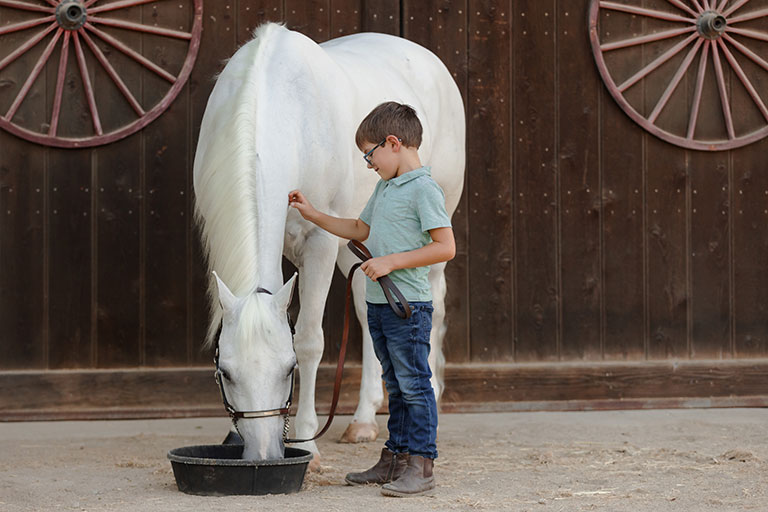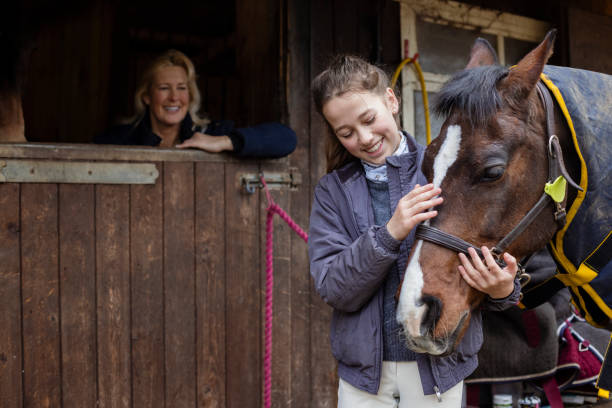As horses age, their dental needs evolve. Dental care for older horses is crucial for maintaining their overall health and quality of life. Understanding these needs can make a significant difference in the care and comfort of senior equines. In this article, we will explore the importance of dental health, common issues, and best practices for maintaining dental care for older horses.

Understanding the Aging Process in Horses
Horses experience changes in their teeth as they age, just as humans do. These changes can affect their ability to eat and digest food properly. Regular check-ups and proper dental care can ensure that your horse remains healthy and comfortable.
The Anatomy of Horse Teeth
Horses have a unique dental structure. They have incisors for cutting grass and molars for grinding food. As they age, their teeth wear down, which can lead to various dental problems. Understanding this anatomy is key to providing appropriate care.
Common Dental Problems in Older Horses
Older horses are prone to several dental issues, including tooth loss, sharp enamel points, and uneven wear patterns. These problems can cause pain and difficulty eating, leading to weight loss and other health issues.
Tooth Loss and Wear
As horses age, they may lose teeth or experience significant wear. This can impact their ability to chew food properly, resulting in inefficient digestion.
Sharp Enamel Points
Over time, uneven wear can create sharp points on the teeth, which can cut into the horse’s cheeks and tongue, causing pain and discomfort.
Importance of Regular Dental Check-ups
Regular dental check-ups are essential for identifying and addressing dental issues before they become severe. A veterinarian specializing in equine dentistry can provide these check-ups and perform necessary treatments.
Frequency of Dental Exams
It is recommended that older horses receive dental exams at least once a year. However, some horses may require more frequent check-ups depending on their individual needs.
Benefits of Professional Care
Professional dental care can prevent dental problems from worsening and help maintain your horse’s overall health. A qualified veterinarian can spot issues that might not be visible during routine care.
Preventative Measures for Maintaining Dental Health
Preventative care is key to maintaining dental health in older horses. This includes proper diet, regular cleaning, and monitoring for any signs of discomfort or dental issues.
Diet and Nutrition
Ensuring your horse has a balanced diet is crucial for maintaining dental and overall health. Senior horse diet plans can provide guidance on appropriate nutrition.
Regular Cleaning and Care
Keeping your horse’s mouth clean is essential. Regular cleaning can prevent the buildup of tartar and plaque, which can lead to more serious dental problems.
Recognizing Signs of Dental Problems
Being able to recognize signs of dental issues can help you address problems early. Common signs include difficulty eating, weight loss, and changes in behavior.
Behavioral Changes
If your horse is experiencing dental pain, you may notice changes in their behavior, such as reluctance to eat or a decrease in activity levels.
Working with a Veterinarian
Working closely with a veterinarian can ensure that your horse receives the best possible care. Veterinarians can perform detailed examinations and recommend appropriate treatments.
Choosing the Right Professional
Selecting a veterinarian with experience in equine dentistry is important for providing high-quality care to your horse.
Creating a Care Plan
Working with your veterinarian to create a tailored care plan can help address your horse’s unique needs and ensure their well-being.
Additional Resources
For more information on caring for older horses, you can visit resources like the University of Minnesota Extension and Horse & Country.
Conclusion
Providing proper dental care for older horses is vital for their health and quality of life. By understanding their needs and working with professionals, you can ensure your horse remains healthy and happy in their senior years.

Frequently Asked Questions
How often should older horses have dental check-ups?
Older horses should have dental check-ups at least once a year, although some may require more frequent visits depending on their specific needs.
What are the signs of dental problems in older horses?
Signs of dental problems in older horses include difficulty eating, weight loss, and changes in behavior such as decreased activity levels.
Can diet affect the dental health of older horses?
Yes, diet plays a crucial role in maintaining dental health. A balanced diet can help prevent dental issues and support overall health. For more details, you can explore best practices for senior horses.
This article contains affiliate links. We may earn a commission at no extra cost to you.
